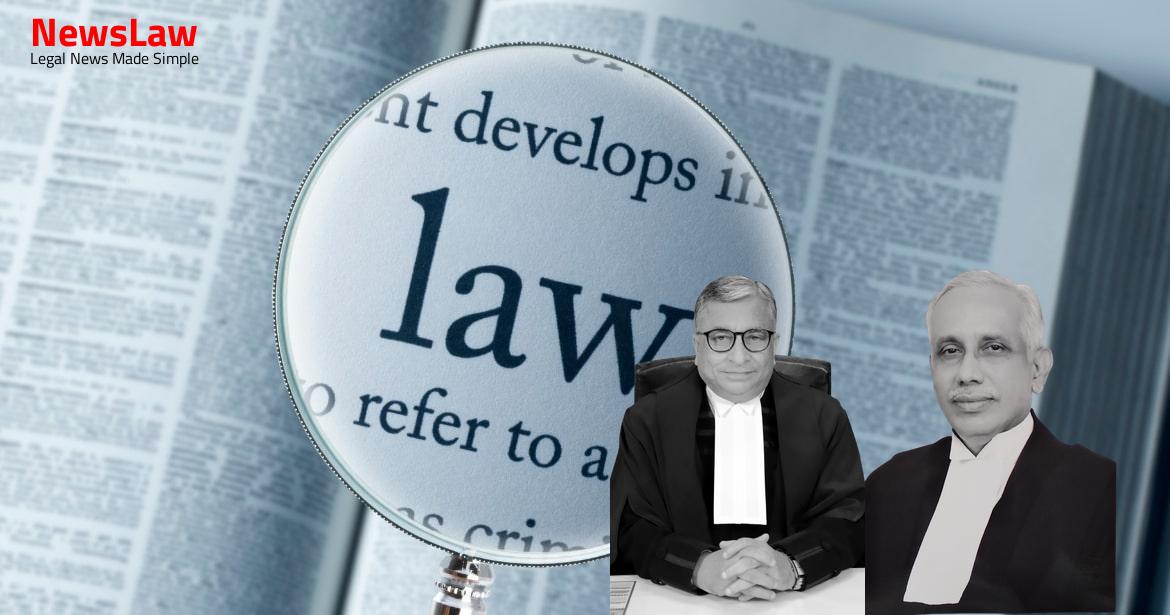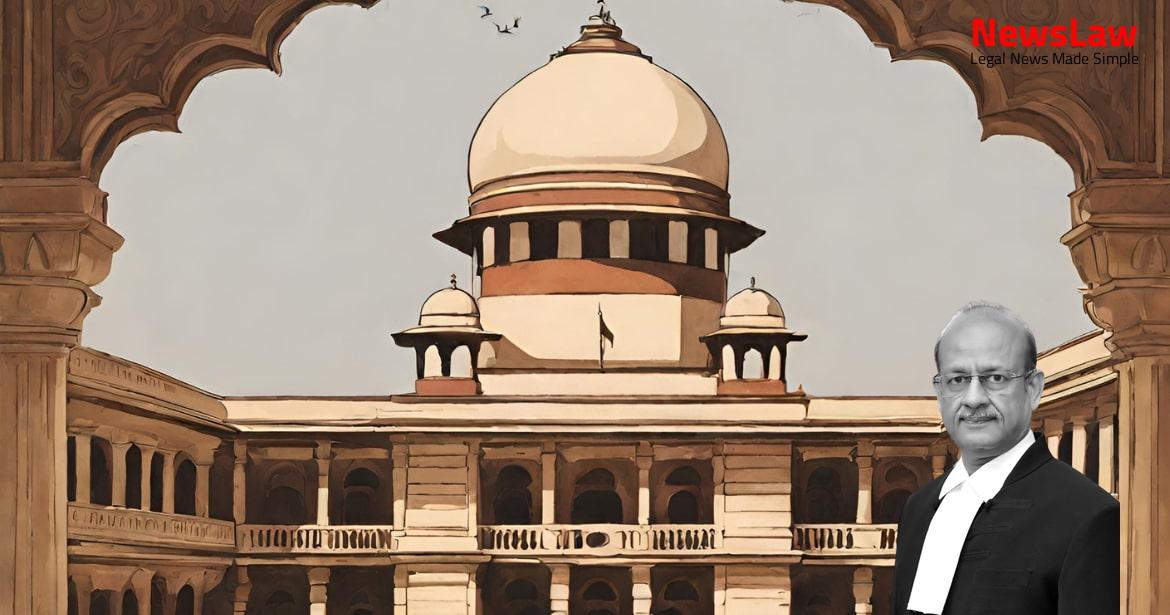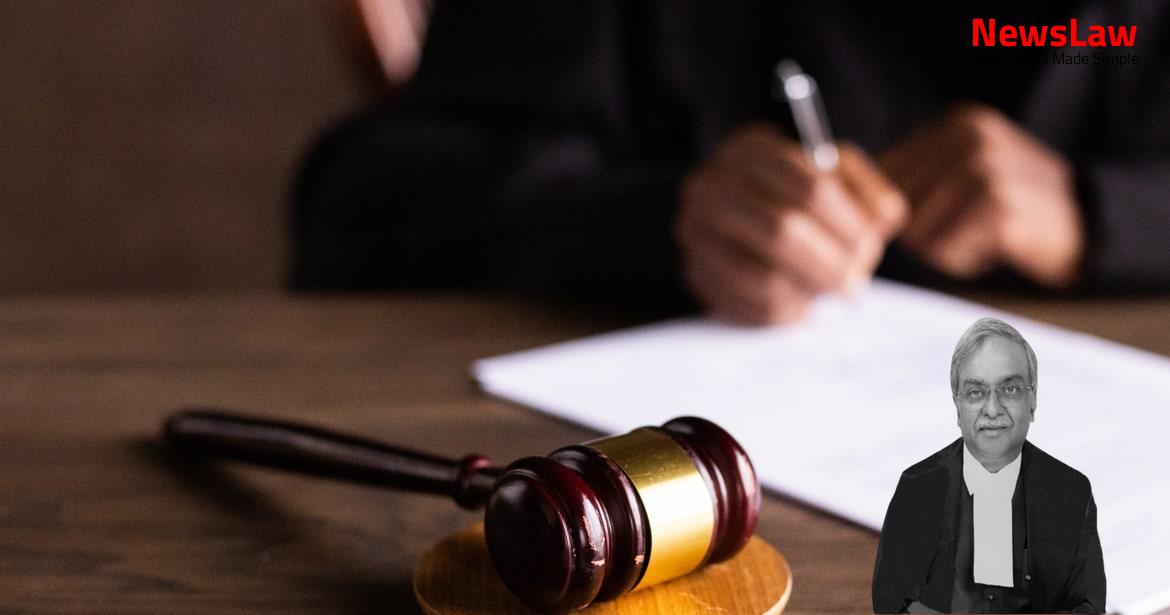Delve into a case where the court’s analysis of circumstantial evidence came under scrutiny, leading to a verdict of unjust conviction. The complexity of proving negligence and establishing a direct link to the victim’s death shines a light on the challenges of relying on technical allegations without substantial evidence. Join us in exploring the principles of criminal law and the doctrine of res ipsa loquitur in determining guilt beyond a reasonable doubt.
Facts
- The deceased got up to separate the dish wire, TV connection wire, and telephone wire which were entwined together, resulting in an electric shock and his death.
- Appellant No. 2, a daily wage worker under Appellant No. 1, pulled the telephone wire while working on the DP Pole.
- The circumstances leading to the conviction of the Appellants/Accused include doctor’s report on the cause of death, eyewitness accounts of feeling electricity in telephone instruments, and other witnesses’ testimonies.
- The defence of the Appellants/accused is they did not attend any telephone wire repair at the incident location, denying negligence causing the death.
- The post-mortem report attributes death to cardiac arrest and brain stem paralysis secondary to shock, implying the source was the television set, not the telephone connection.
- There are doubts raised on the claim of 11KV current passing through the telephone wire without melting, discrediting some eyewitness accounts as hearsay.
- The lower court found that Appellant no. 2 suffered abrasion injuries due to electric shock similar to the deceased.
- PW1 stated in clear words that the blood vessels of right thumb finger and ring finger were burnt and wounds were shrinking.
- The High Court upheld the lower court’s decision, convicting the Appellants under Section 304(A) read with Section 34 of the IPC.
- Both Appellants were sentenced to undergo Simple Imprisonment for 1 year and 3 months, with a penalty of Rs. 3000/- each.
Also Read: Assessment of Loss of Earning Capacity in Motor Accident Claim
Analysis
- Courts below were not justified in convicting the Appellants of negligence under Section 304A read with Section 34 IPC
- Prosecution needs to prove negligence and establish a direct nexus between negligence and the victim’s death
- Technical allegations against the Appellants lack substantial evidence
- No technical expert inspection conducted to assess the veracity of the complainants’ claims
- Record lacks eye-witnesses to the incident
- Even if the accused’s defense seems implausible, the burden of proof remains with the prosecution
- Doctrine of res ipsa loquitur does not apply to criminal cases.
- Circumstances constituting the accident must be firmly established for guilt inference.
- The conviction in the present case seems unjustified against the evidence.
- The onus of proving all ingredients of an offense is always on the prosecution.
- Simplified application of res ipsa loquitur in inferring a fact from circumstantial evidence has principles to be fulfilled before conviction.
- Circumstances in circumstantial evidence should point unerringly towards the guilt of the accused.
- There is a risk of jumping to conclusions in haste with circumstantial evidence.
- The Appellants are entitled to the benefit of doubt as no technical expert report corroborates the prosecution’s story.
- It is implausible that a telephone wire could carry 11KV current without melting or causing damage to the Television set or the house wiring.
- The fact that Appellant no. 2 came into contact with the same voltage with minimal injuries adds to the skepticism of the prosecution’s claims.
- All evidence presented is circumstantial in nature and lacks substantial support.
Also Read: Enhancement of Compensation in Workmen’s Compensation Act Case
Decision
- The Appellants are on bail.
- They shall be discharged of their bail bonds.
- Accordingly, impugned judgment of conviction and sentence of the appellants is set aside.
Also Read: Determining Compensation in Motor Accident Claim Cases: Legal Analysis
Case Title: NANJUNDAPPA Vs. STATE OF KARNATAKA (2022 INSC 576)
Case Number: Crl.A. No.-000900-000900 / 2017



